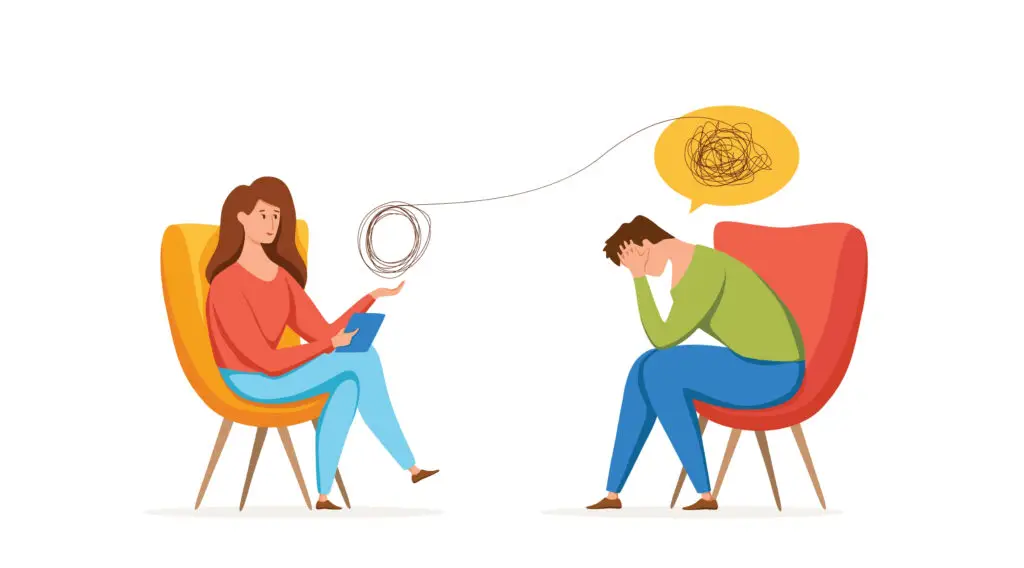Depression is one of the most common mental health conditions in the United States, affecting millions of people each year. In North Dakota, just like anywhere else, individuals struggling with depression often feel overwhelmed, isolated, or unsure of where to turn for help. Fortunately, there are many effective treatment options available for those seeking depression therapy in ND. From traditional counseling methods to innovative approaches that incorporate lifestyle changes and medical support, understanding these options can empower individuals to make informed decisions about their mental health care. This article will provide a comprehensive look at the therapy choices available in North Dakota for those experiencing depression, along with guidance on how to find the right approach.
Understanding Depression and Why Therapy Matters
Depression is more than occasional sadness. It is a mental health disorder characterized by persistent feelings of hopelessness, loss of interest in activities, fatigue, and difficulty with daily functioning. Without proper treatment, depression can worsen over time and interfere with work, relationships, and physical health. Therapy for depression is not a one-size-fits-all solution. Each person’s experience is unique, and effective treatment often involves tailoring care to individual needs. In North Dakota, mental health providers offer a variety of therapeutic approaches designed to reduce symptoms and improve quality of life.
Counseling and Talk Therapy Options
One of the most common forms of depression therapy in ND is counseling, also known as psychotherapy or talk therapy. Licensed counselors, psychologists, and social workers provide safe, supportive environments where individuals can explore their thoughts, emotions, and behaviors. Cognitive Behavioral Therapy (CBT) is especially popular because it focuses on identifying and changing negative thought patterns that contribute to depression. Dialectical Behavior Therapy (DBT) may also be used, particularly for individuals dealing with intense emotions or co-occurring conditions. Traditional talk therapy can take place in person at a clinic, through private practices, or via telehealth platforms, which are increasingly accessible across North Dakota.
Medication Management
For some individuals, therapy alone may not fully address symptoms of depression. In these cases, medications prescribed by psychiatrists or primary care physicians can play a critical role in treatment. Antidepressants such as SSRIs and SNRIs are often used to rebalance brain chemistry and reduce depressive symptoms. In ND, patients may seek medication management through local clinics, hospitals, or mental health providers who specialize in psychiatric care. Medication is frequently combined with therapy to provide a more comprehensive treatment plan.
Group Therapy and Support Groups
Depression often causes people to withdraw from others, but group therapy offers a unique way to reconnect and find community. In North Dakota, many mental health centers and nonprofits host group therapy sessions for individuals experiencing depression. These groups provide opportunities to share experiences, learn coping skills, and build support networks. Group therapy can help reduce feelings of isolation and encourage individuals to see that they are not alone in their struggles. Peer-led support groups, such as those offered by organizations like NAMI North Dakota, can also be an important supplement to professional treatment.
Online and Telehealth Therapy
Given the rural nature of much of North Dakota, access to in-person mental health care can sometimes be limited. Fortunately, telehealth has expanded access to depression therapy in ND. Many providers now offer virtual counseling sessions through secure platforms, making it easier for individuals to receive care without traveling long distances. Telehealth can be especially helpful for those in rural communities or for individuals with mobility challenges. Online platforms also allow for flexible scheduling, which can reduce barriers to starting and maintaining treatment.
Specialized Therapies
In addition to traditional counseling, North Dakota residents have access to specialized therapies that may be effective for treating depression. These include Eye Movement Desensitization and Reprocessing (EMDR), which is often used for trauma-related depression, and Acceptance and Commitment Therapy (ACT), which helps individuals focus on values-based living while managing symptoms. Some clinics also offer holistic approaches such as mindfulness-based cognitive therapy, yoga, or meditation practices integrated with counseling sessions. For individuals who have not responded to other forms of treatment, providers may suggest advanced interventions like Transcranial Magnetic Stimulation (TMS), which is available in certain medical centers across the state.
Integrating Primary Care and Mental Health
Increasingly, clinics in North Dakota are integrating mental health services into primary care settings. This model ensures that patients who come in for routine checkups also receive screenings for depression and referrals for therapy if needed. Integrated care allows for better coordination between medical providers and mental health professionals, which can lead to earlier intervention and more consistent support. This approach is especially important in rural areas where access to standalone mental health services may be limited.
Lifestyle and Community-Based Approaches
While professional therapy is essential, lifestyle changes and community support can also play a major role in managing depression. Regular physical activity, balanced nutrition, and quality sleep all contribute to better mental health. Many providers in North Dakota encourage patients to incorporate these habits alongside therapy sessions. Community-based programs such as wellness workshops, faith-based support, and recreational activities can also provide meaningful outlets for connection and healing. Rural communities often emphasize resilience and resourcefulness, which can complement formal therapy approaches.
Finding Depression Therapy in ND
Navigating the mental health system can feel overwhelming, but there are resources to help individuals find depression therapy in ND. The North Dakota Department of Health and Human Services provides directories of licensed providers and community mental health centers. Local hospitals and clinics often list mental health services on their websites. Nonprofit organizations such as NAMI North Dakota and Mental Health America of North Dakota can also connect individuals to resources and support groups. Insurance providers may offer directories of in-network therapists, and telehealth platforms can expand choices for those who cannot find local providers.
Overcoming Barriers to Care
Despite the availability of options, some individuals may face challenges in accessing depression therapy in ND. Barriers may include stigma surrounding mental health, financial limitations, or lack of nearby providers. To address these concerns, North Dakota has expanded initiatives that provide financial assistance, increase awareness, and promote telehealth solutions. Employers may also offer Employee Assistance Programs (EAPs) that include mental health counseling. By reducing barriers, the state continues to improve accessibility for individuals in need of support.
The Importance of Early Intervention
Seeking treatment for depression early can prevent symptoms from becoming more severe. Many people delay therapy because they hope their feelings will pass on their own, but untreated depression can impact every aspect of life. By exploring therapy options in North Dakota sooner rather than later, individuals increase their chances of recovery and improved well-being. Therapy is not just about symptom reduction, but also about building coping skills, resilience, and healthier relationships.
Conclusion
Depression can feel overwhelming, but it is treatable. In North Dakota, a variety of options exist for individuals seeking help, ranging from traditional talk therapy and medication management to group support, telehealth, and specialized interventions. Lifestyle changes and community-based approaches can further enhance the benefits of professional care. By exploring the full range of depression therapy in ND, individuals can find a path to healing that fits their needs and circumstances. With the right support, recovery is not only possible but achievable for anyone willing to take the first step toward seeking help.



































